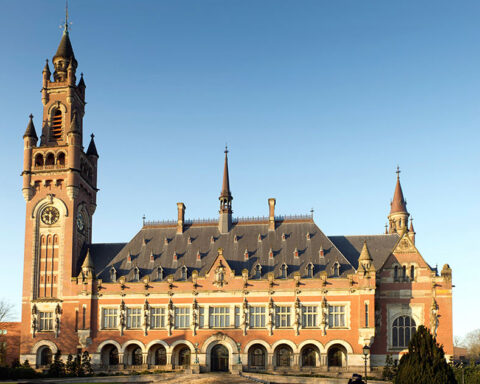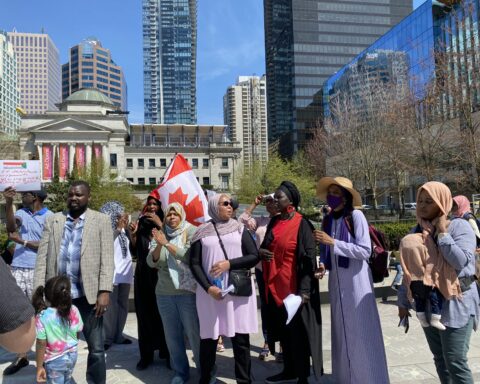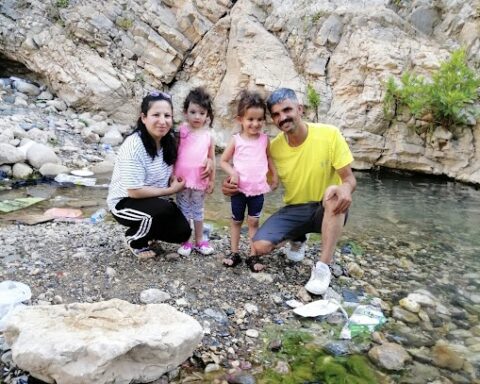Historically, amnesties have been offered to former combatants in an attempt to stop the violence and allow a country the chance to rebuild itself.
A really good example where an amnesty seemed to work would be in South Africa where it was part of that nation’s Truth and Reconciliation Commission post-Apartheid. On the other hand, amnesty for fighters was rejected in the recent Colombian referendum on ending the half century war with the FARC.
Amnesties can be hard to sell. Conflicts where hundreds or thousands of people have been killed by insurgencies or guerrilla movements or terrorists can result in acrimony and long memories where populations are unwilling to let those responsible for the violence get off lightly. This is what appears to have happened in the narrow defeat of the Colombian referendum.
A question that is being asked by some is whether we should consider offering an amnesty to returning foreign fighters with Islamic State. One such proposal was published recently by David Wells (full disclosure: Wells is an acquaintance and, like me, a former intelligence analyst). He wrote that by offering a “plea bargain” to those who are coming home disillusioned, security intelligence and law enforcement agencies could focus their limited resources on those who pose a real threat to their homelands upon return.
Brutality and inhumanity
Wells does offer a few cautionary statements about the difficulties of carrying out such an amnesty and I want to build on those (NB: more in my forthcoming book Western Foreign Fighters: the threat to homeland and international security).
To my mind, the single greatest obstacle to social acceptance of any form of amnesty for those who joined IS is the sheer brutality and inhumanity of the group’s actions. Whether we are talking about beheadings, immolations, throwing people off roofs, raping girls or selling women into slavery, the depravity so rampant among IS members puts them in a special level of hell.
No one will want to see these animals get any break on the punishment they so richly deserve.
Compounding this problem is determining who did what in theatre. Aside from the really stupid ones who posted videos online boasting of their lust for violence and those even more stupid to return home – assuming they have not been Hellfired into oblivion (the best case scenario really) – we will probably not be able to determine who the worst actors are.
Gathering evidence
States will want to prosecute those guilty of war crimes, but unless we have posted videos as evidence, this will be very difficult. Gathering such evidence in a conflict zone like Syria is unquestionably a challenge and it is not as if we can rely on Syrian authorities for help (besides, given recent cases of Syrian-Canadian “collaboration” in several alleged torture incidents, Syrian assistance would be politically impossible even if it were offered).
Furthermore, what do we do with the confessions/denials of some returnees? While it is probable that there are legitimate instances of those who are disgusted with what they saw and may not have actually contributed to the horror, how do we make that determination? Whom do we believe?
In the end, the fact that these individuals have left Canada (or many other countries) to join IS (or other groups) is a criminal offence and it is in the interest of the state to pursue legal action where the evidence is available. Each case will have to be judged on its merits and there may be ones where an amnesty – or the decision not to take to trial – can be considered.
“Forgiving” populations
We do have one instance of this already in Canada when the Crown chose not to charge three young women from the Toronto area after they unsuccessfully tried to travel to Syria to join IS (they were interdicted in Egypt thanks to excellent police work on this end).
We also have to bear in mind that some of these ex-combatants will still pose a threat to our societies. We have already seen attacks carried out by returnees and we will see more. It is not unreasonable to predict that over the next five years or so our security intelligence and law enforcement agencies will be very busy trying to stop future attacks by returning terrorists.
I suppose that amnesties are feasible where there are at least some people on both sides of the conflict who can see the perspective and justification of violence from the other’s point of view. And, yet, it is impossible to imagine a scenario where anyone views the actions of IS this way.
There are also significant differences in the nature of conflict where amnesties appear to have had a positive effect – say South Africa – versus ones where the “forgiving” population has not been beset by direct warfare in their own backyards. If you are not from Syria or Iraq, you have not witnessed the daily carnage caused by IS and are thus less willing to take a chance to end it by offering amnesty.
I fear that anyone who proposes forgiving returning terrorists will have a very tough job ahead of them. And, I am not sure that this is a good idea in the first place.
Phil Gurski worked for more than three decades in Canadian intelligence, including 15 at Canadian Security Intelligence Service (CSIS), and is the author of the Threat from Within and the forthcoming Western Foreign Fighters (Rowan and Littlefield). He blogs at http://www.borealisthreatandrisk.com/blog/
Phil Gurski is a former terrorism analyst at the Canadian Security Intelligence Service (CSIS). He specializes in radicalization and homegrown Al Qaeda/Islamic State/Islamist-inspired extremism and has published several books, including the forthcoming When Religions Kill: how extremists justify violence through faith.” He is a member of New Canadian Media’s board of directors.





